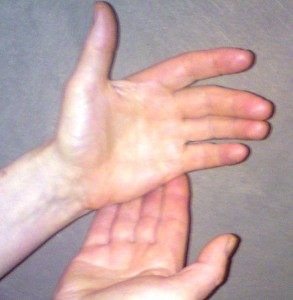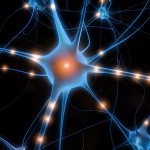 Feeling depressed and unhappy can really bring you down. Rates of depression in our population are increasing radically. In the USA rates are ten times higher than they were in the great depression of last century, and people are getting depressed much earlier in their lifetimes.
Feeling depressed and unhappy can really bring you down. Rates of depression in our population are increasing radically. In the USA rates are ten times higher than they were in the great depression of last century, and people are getting depressed much earlier in their lifetimes.
We have an abundance of technology that should help us have easier, happier lives, but our artificial lifestyles seem to stress us out, bring us down, and reduce our happiness. It’s fair to say we are having a bit of a depression epidemic.
Many people believe that it is impossible to lift their mood, to climb out of depression, and to be happy, without medication. But, to the contrary, research has shown that it is possible to improve our baseline happiness by actively and consciously taking steps to turn our mood around. This is the science of positive psychology.
WHY WOULD YOU WANT TO FEEL HAPPIER?
Well, apart from the obvious, when we are happier, we perform better and tend to become more successful.
Children who were encouraged to recall a happy experience before doing a task outperformed their peers by fifty percent. Similarly, adults who are primed to be positive and happier before completing an intelligence test, or thinking task, perform significantly better than their un-primed peers.
Research has shown that happy people are healthier and live longer than unhappy people too. This makes sense, as mood is known to affect our immune systems.
HOW TO FEEL HAPPY
According to Shawn Anchor from Harvard University, we can increase our general state of happiness by doing some really simple stuff.
- Write down five things you are grateful for every morning. If you do this for 21 days your baseline happiness levels should improve for the next 6 months.
- Write about a positive experience every day for 30 days. This has been shown to boost immune system and increase your sociability.
- Do one thing at a time, rather than trying to multitask. Multitask increases stress and we know that stress affects us physically and emotionally.
- Work out what you are good at and use these strengths in your everyday life. This will increase your self esteem and productivity, and so positively affect your well being.
- Exercise. This reduces stress levels and improves mood, and is much better for you than anti-depressants.
- Meditate. This has been shown to affect brain waves, reduce stress reactions, and increase happiness.
- Smile. The more we smile on the outside, the happier we feel internally.
When my depressed clients to do this simple stuff, it makes a significant difference to their general mood.
CHANGE THE DIRECTION OF YOUR ENERGY
On top of these homework strategies, I often show clients how to control the energy in their bodies to create a more positive mood.
Think for a minute about how you feel when you are low or depressed. People usually feel a heavy feeling moving down through the lower half of their bodies.
Now think of a happy or exciting experience. Where do you feel the energy? What direction is it going? Usually up and out from the heart.
So now go back to feeling sad and low. Feel that heavy, sinking energy.
Now take that feeling, and imagine it moving up your body. Imagine it coming up through the earth, through your feet, up your legs, through your belly, into your heart, where it’s transformed into positive energy. You might be able to feel the energy as light, glowing or tingling stuff.
Then feel that positive energy expand in your heart. Imagine it expanding to fill your whole chest in a warm, yummy way. Now imagine it continuing up your spine, up through the back of your neck, through the back of your head, and up and out the top of your head. YES! YES! YES!!!!
THINK POSITIVELY
Another really important strategy for increasing happiness and productivity is to think positive thoughts. Become aware of your internal dialogue: the things you say to yourself about a situation or experience, or your life. Identify the negative or pessimistic ones, then simply change your head. Let go the negative thoughts and replace them with positive thoughts. Simple.
GET OUT IN THE SUN
Sunlight is known to increase happiness and health. Scientists believe this is, at least in part due to Vitamin D. Vitamin D is produced in our skin in the sun. It’s known to play a significant role in switching our genes on and off, so is vital for health and well being. People who are deprived of enough sunshine can fall victim to low mood caused by SADs, or seasonal affective disorder. This is why so many of us suffer depression and low mood in the winter. So, whatever the weather, make sure you get out in the daytime at least once a day. Failing that, or if it’s too cold to expose much skin, take vitamin D supplements.
BEGIN NOW
I realise it is often very difficult to motivate yourself to make changes and try new things when you are feeling low or depressed. But if you force yourself to apply all, or even some, of these strategies for a few days, starting today, you will be on your way to being happier, healthier and more productive.
So stop what you’re doing, get out a pen and paper, and write down five things you’re grateful for. It could be anything from a beautiful sky to a loved one, or the crunchy apple you had for lunch. Next, spend five minutes writing about a positive experience that you have had. Then go for a walk with a smile on your face. Do that every day, and you should start to feel a difference very quickly. Simply suck it and see.
Have fun.

 It is well known that
It is well known that 


